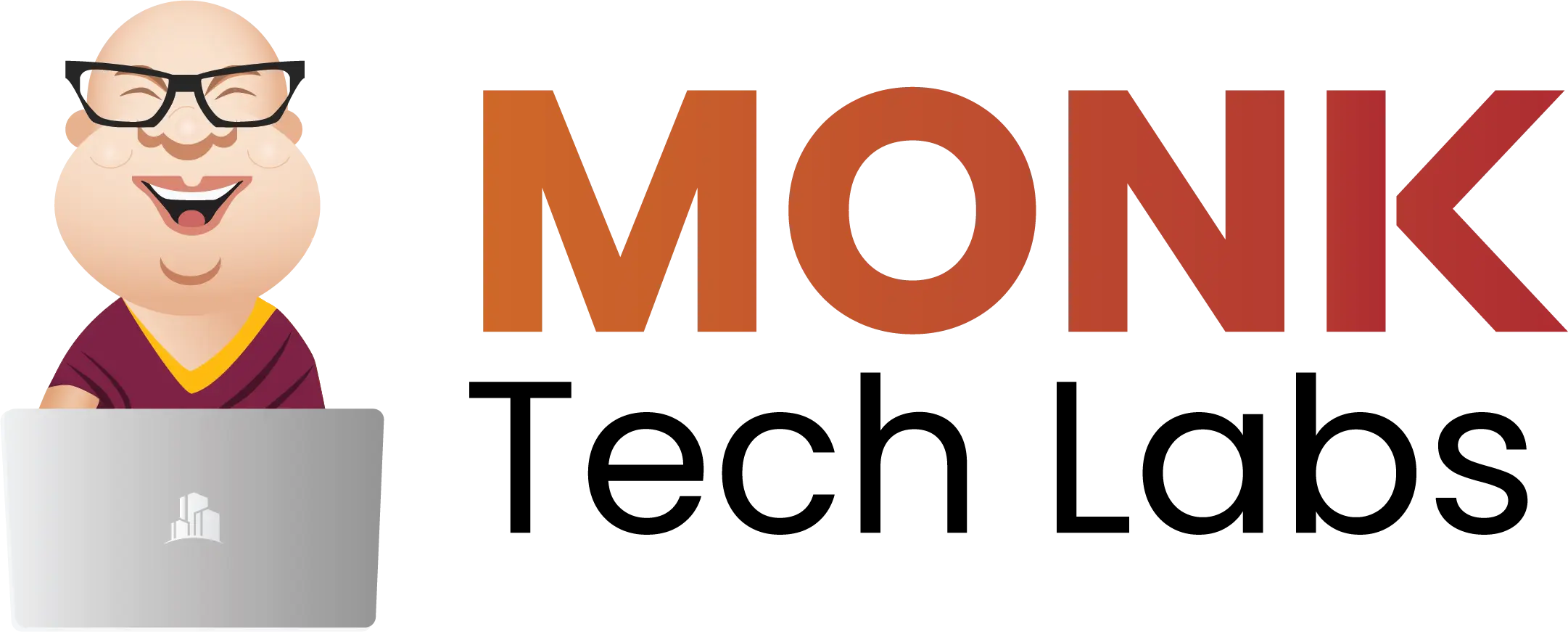Real Estate investment has evolved over the years, giving rise to various asset classes, models and strategies. Among a few, two key segments have emerged called: PropCo and OpCo. In this blog, we’ll delve into the distinctions between these entities, the nature of the relationship and how it’s evolving, and trends we are seeing about this for the future.
PropCo: The Foundation of Physical Assets
PropCo, or Property Company, primarily is in the business of owning real estate assets on its balance sheet. PropCos core focus is to raise capital, identify opportunities to build or buy Real Estate assets and hold onto them for further growth.
Their operational approach to identifying assets usually happens in 1 of 3 ways :
PropCos enjoy both the cash flow that’s generated from the underlying asset, and profits accrued through sale of the eventual sale of the asset as well.
Many real estate developers, real estate private equity, family offices and HNIs are PropCos.
OpCo: Where Operations Take Center Stage
OpCo, short for Operating Company, helps PropCos to manage, maintain and monetize their portfolio. Let’s take an example to better explain the concept of OpCos.
A commercial (say office) asset owned by a PropCo, is converted into a coworking space by an OpCo.
While the core of an OpCo remains a property management offering, OpCos have become very popular over the past decade as there is a lot of value addition happening at this level. Flexible leases, interior transformation, shared spaces, high service levels, and many other offerings by OpCos are valued by end customers (Tenants) and not something PropCos were keen to do themselves.
OpCos work on either a revenue sharing model or on a lease-sublease model with the PropCo that owns the underlying real estate.
Examples of OpCos are:
Commercial: Coworking company (WeWork), Managed Office Space Providers (Regus)
Residential: Coliving companies (Habyt, HelloWorld, etc.), Student housing providers (Yugo), Property Management Companies (Greystar)
Hospitality: Hotel management companies (Marriott Group, IHG), Hostel chains (Zostel, Generator)
Relationship between PropCo’s and OpCo’s and How They Function Together
PropCos and OpCos have to work together. It’s a symbiotic relationship where the success of one directly impacts the other, and both require each other to accentuate the success of the underlying real estate asset.
They might be adjacent to each other yet they work on a different set of values –
- PropCos focus is on identifying the kind of assets they want to acquire, how to finance the acquisition and how to time a successful exit on the asset
- OpCos, on the other hand, focus more from a consumer based perspective where their priority is to build a brand, to scale it in a B2B or B2C level and how to increase operational efficiency and streamline processes
Thus, to build a sustainable asset, there is a need for both these entities to coexist in the Real Estate Industry.
Trend of OpCos getting equity in the PropCo
An interesting trend that everyone should be on the lookout for is OpCos taking a small equity stake in the PropCo itself. The general feeling of such OpCos is that there a lot of value addition happening in the PropCo mainly on account of their services, and they are not getting their share of the same.
We are seeing between 1-10% of the PropCo equity being given to OpCo based on the performance . This is a super interesting trend and we believe this is here to stay.
Why so?
Value Addition at the Asset Level
Let’s take a PropCo owned asset that generates a cash flow of $100,000. At a 10% cap rate, the asset will be valued at $1 million. Supposedly, an OpCo comes into the picture and helps increase the cash flow of the asset to $150,000. The OpCo here might get a bigger chunk of the additional cash flow they’re able to generate (Possibly up to 80% of the new cash flow).
The challenge/opportunity here is that the value of the underlying asset at the same cap rate, but with new cash flow increases to $1.5 million resulting in increased asset value of $500,000. This entire increase in value is enjoyed by the PropCos and OpCos aren’t getting the benefit of this, despite this increased value being a direct result of their work.
This has shifted OpCos interests towards owning a stake in the real estate asset. While revenue share models with the PropCos are helpful, OpCos are starting to feel they are leaving money on the table by restricting their business model to only that.
Increasingly, OpCos are getting involved at earlier stages of a PropCo including in helping identify assets, planning the interior transformation, helping project future financials and cash flow etc. and reinforces the earlier point of OpCos wanting a deeper relationship with the PropCo.
Trend of PropCos taking a strategic interest in OpCos
Another side of the story here is that PropCos have been taking a strategic interest in OpCos through a minority investment or complete acquisition. What was earlier a partner or vendor relationship has started changing drastically. PropCos want deeper synergies with the companies responsible for managing and monetizing their assets.
There are many reasons for this trend, but the prime reasons are –
- Risk of failure of OpCo: In segments like Hospitality, large players have established themselves as credible partners for PropCos, but in other segments, this hasn’t been the case. WeWork (in the US) is becoming a classic case study, wherein the PropCos who have partnered with WeWork are going through crisis at the moment due to failure of the OpCo
- Need for greater control in operations: The revenue generated from the asset is at the control of the OpCo, but has a large impact on the asset value owned by the PropCo
- Value of being a Consumer Brand: Oyo, WeWork and many other operators have established a consumer brand identity for themselves and has resulted in value creation for many of the underlying assets through premiumization. PropCos don’t get a piece of the value created at this level as they are primarily only a real estate owner
History would suggest that PropCos refrain from getting involved on the operational side of their assets. However, many of the above reasons are allowing for a case to be made for the same.
Conclusion
The evolving landscape of OpCos and PropCos has a lot to bring to the Real Estate Industry. As OpCos lean towards real estate ownership and PropCo’s seek more influence over management of their assets, we’re witnessing a convergence of interests that promises to reshape how the real estate industry transforms.
At Monk Tech Labs, we are a partner to both PropCos and Opcos and enable management of real estate through TheHouseMonk and TheOfficeMonk. We are excited to watch this industry evolve, and keen to continue supporting its digital transformation efforts.
































59 Responses
daktilogibigibi.kFJDbiZw5baT
daxktilogibigibi.8NkzXZ6hzhNX
xyandanxvurulmus.bZLrGLyOgZX9
xbunedirloooo.OLfBQC4iLR1e
essayists xyandanxvurulmus.uG3jcRjF4ICk
empolders xyandanxvurulmus.xOYEvXQUQW5k
fuck vurgunyedim.Jsa17fnHBjeB
anal siteleri yaralandinmieycan.AQnhW0Cxg3kL
eskort siteleri citixx.r9IIVQTS2wsm
porno hyuqgzhqt.MxvPiRW09KRc
am siteleri ewrjghsdfaa.yy2AXFBJcgr9
amciik siteleri wrtgdfgdfgdqq.pe9y4sxL5buG
childrens sex wrtgdfgdfgdqq.xawHadR8wzu5
escort siteleri wrtgdfgdfgdqq.Lo0hpwCvZWTh
Мадонна, икона поп-музыки и культурного влияния, продолжает вдохновлять и поражать своей музыкой и стилем. Её карьера олицетворяет смелость, инновации и постоянное стремление к самовыражению. Среди её лучших песен можно выделить “Like a Prayer”, “Vogue”, “Material Girl”, “Into the Groove” и “Hung Up”. Эти треки не только доминировали на музыкальных чартах, но и оставили неизгладимый след в культурной и исторической панораме музыки. Мадонна не только певица, но и икона стиля, актриса и предприниматель, чье влияние простирается далеко за рамки музыкальной индустрии. Скачать mp3 музыку 2024 года и слушать онлайн бесплатно.
senin o bacini sikicem
That is a great tip particularly to those fresh to the blogosphere. Simple but very precise info… Thanks for sharing this one. A must read article.
Pretty! This was an incredibly wonderful post. Many thanks for supplying this information.
Tremendous things here. I’m very happy to
see your post. Thank you so much and I’m taking a look
forward to touch you. Will you please drop me a mail?
Hi i think that i saw you visited my web site thus i came to Return the favore I am attempting to find things to improve my web siteI suppose its ok to use some of your ideas
The next time I read a blog, Hopefully it won’t fail me just as much as this one. After all, I know it was my choice to read through, however I really thought you would probably have something helpful to talk about. All I hear is a bunch of whining about something you could possibly fix if you weren’t too busy looking for attention.
I have to thank you for the efforts you’ve put in writing this blog. I really hope to view the same high-grade blog posts from you later on as well. In fact, your creative writing abilities has encouraged me to get my very own blog now 😉
This article is truly a fastidious one it helps new the web visitors,
who are wishing in favor of blogging.
excellent submit, very informative. I wonder why
the other specialists of this sector do not realize this.
You must proceed your writing. I am sure, you’ve a great
readers’ base already!
I got this web page from my pal who informed me regarding this site and
now this time I am visiting this site and reading very informative articles here.
Hello Neat post Theres an issue together with your site in internet explorer would check this IE still is the marketplace chief and a large element of other folks will leave out your magnificent writing due to this problem
Nice post. I learn something totally new and challenging on sites I stumbleupon everyday. It’s always interesting to read content from other authors and practice something from other web sites.
I couldn’t resist commenting. Very well written.
Hi! I could have sworn I’ve been to your blog before but after going through many of the articles I realized it’s new to me. Nonetheless, I’m definitely pleased I came across it and I’ll be bookmarking it and checking back often.
Your way of telling everything in this article is in fact pleasant, all be able to easily know it,
Thanks a lot.
This discussion is long overdue—thanks for starting it.백링크 업체
This excellent website really has all of the information and facts I needed about this subject and didn’t know who to ask.
Spot on with this write-up, I honestly believe that this web site needs a lot more attention. I’ll probably be back again to read through more, thanks for the information!
I would like to thank you for the efforts you have put in penning this blog. I really hope to view the same high-grade blog posts by you in the future as well. In truth, your creative writing abilities has encouraged me to get my very own blog now 😉
Way cool! Some extremely valid points! I appreciate you writing this post and also the rest of the site is also really good.
This is a topic that is close to my heart… Many thanks! Where are your contact details though?
I blog often and I truly appreciate your content. Your article has truly peaked my interest. I will take a note of your website and keep checking for new information about once per week. I subscribed to your RSS feed as well.
An interesting discussion is definitely worth comment. I think that you ought to publish more on this topic, it might not be a taboo subject but generally people do not speak about such topics. To the next! Kind regards!
I’m amazed, I must say. Rarely do I come across a blog that’s equally educative and engaging, and let me tell you, you’ve hit the nail on the head. The problem is an issue that too few people are speaking intelligently about. I’m very happy that I came across this in my search for something relating to this.
I was able to find good advice from your articles.
Oh my goodness! Impressive article dude! Many thanks, However I am encountering problems with your RSS. I don’t understand why I cannot join it. Is there anybody else getting the same RSS problems? Anyone who knows the answer can you kindly respond? Thanx!!
Greetings! Very useful advice in this particular article! It is the little changes that make the greatest changes. Thanks a lot for sharing!
Great blog you have here.. It’s difficult to find quality writing like yours nowadays. I truly appreciate people like you! Take care!!
Aw, this was an extremely nice post. Taking the time and actual effort to generate a really good article… but what can I say… I put things off a lot and never manage to get nearly anything done.
I love it when folks get together and share thoughts. Great blog, continue the good work.
There is certainly a great deal to know about this topic.
I love all the points you have made.
After I originally left a comment I appear to have clicked the -Notify me when new comments are added- checkbox and from now on whenever a comment is added I get four emails with the exact same comment. There has to be an easy method you can remove me from that service? Appreciate it.
Greetings! Very helpful advice in this particular article! It’s the little changes that produce the most significant changes. Many thanks for sharing!
I have been exploring for a little for any high quality articles or weblog posts in this sort of area
. Exploring in Yahoo I eventually stumbled upon this website.
Reading this information So i am glad to convey that I have
a very good uncanny feeling I found out exactly what I needed.
I such a lot unquestionably will make sure to don?t disregard this web site and give it a look regularly.
I’m very pleased to discover this website. I need to to thank you for your time just for this wonderful read!! I definitely appreciated every little bit of it and i also have you book-marked to check out new things on your site.
Very nice write-up. I absolutely love this site. Continue the good work!
Greetings! Very helpful advice in this particular article!
It is the little changes which will make the most important changes.
Thanks a lot for sharing!
my blog rajabandot
I always spent my half an hour to read this weblog’s content daily along with a mug of
coffee.
My web page miototo
Hi there it’s me, I am also visiting this website regularly, this web page is genuinely nice and
the visitors are really sharing fastidious thoughts.
Your style is really unique compared to other people I have read stuff from.
Many thanks for posting when you have the opportunity, Guess I
will just book mark this blog.
Heya i am for the first time here. I found this board
and I find It really useful & it helped me out much. I hope to
give something back and help others like you helped me.
Way cool! Some extremely valid points! I appreciate you penning this write-up and the rest of the website is very good.
The blog post provides a comprehensive 3-day travel itinerary
for Utah, focusing on iconic natural landmarks and adventurous activities.
Plan your perfect 3-day trip to Utah with visits to
Arches National Park Bryce Canyon, Zion, Canyonlands, and adventures in Moab.
Traveling can be challenging for women due to menstrual discomfort, but portable remedies can help.
The article discusses herbal teas, heat therapy patches, essential
oils, hydration, and holistic solutions for menstrual relief during travel.The article provides practical tips and natural remedies for
women to manage menstrual discomfort effectively during travel.